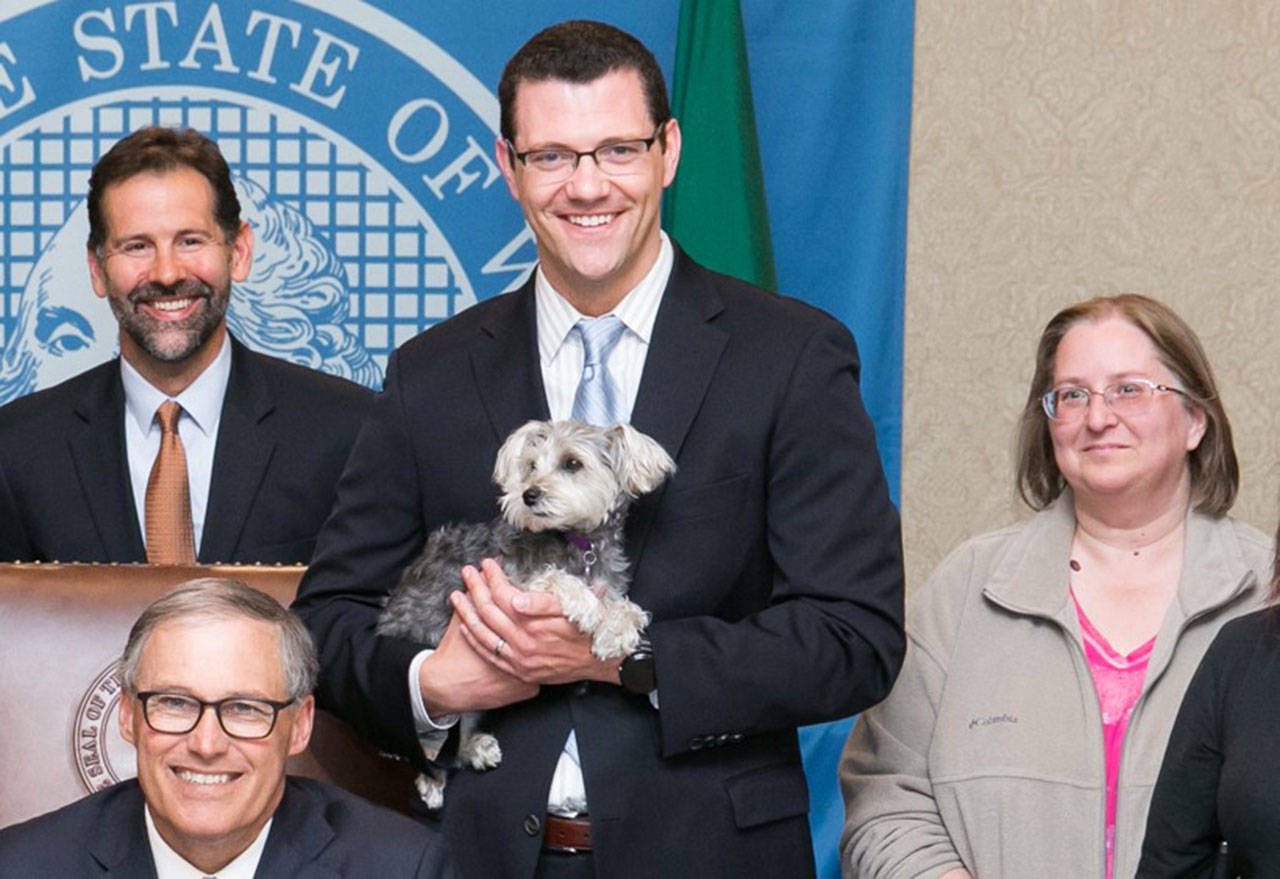Sen. Joe Fain, R-Auburn, and animal advocates say dogs that are restrained for a period of time should have access to food and water, protection from extreme weather and the ability to move about without becoming tangled.
Fain-sponsored legislation, which Tuesday passed the state Senate, would place those standards in state law in order to help keep dogs happy and healthy.
“While the dogs in our state have a wide range of daily accommodations, ranging from lounging on the couch to running free on private property, we all agree that owners must take proper care of their pets,” said Fain, who was previously named the Humane Society’s Legislator of the Year in 2015. “Our plan provides a common-sense method to keep them safe and healthy at times when they’re left alone.”
The legislation establishes baseline health and safety conditions for when and how dogs can be tethered. It also creates a civil infraction for inhumane animal tethering, which would better allow animal care and control officers to respond and issue both a warning and citation.
“There’s a major difference between keeping a dog restrained outside for their own safety for a reasonable amount of time and reckless abandonment and neglect,” Fain said. “This provides an opportunity for animal protection officers to assess individual situations to ensure the health and safety of man and woman’s best friend.”
Washington would become the 21st state along with the District of Columbia to have specific animal tethering laws in place, although they vary.
In order to avoid injuries and permanent damage the legislation prohibits tethering by a choke, pinch, or halter collar, or a chain or rope that is so heavy it impedes the dog’s free movement.
During a public hearing on the legislation, animal care advocates shared stories of neglected dogs who had been tethered so long the collar cut and even grew into the muscles around the dog’s neck.
The bill passed unanimously and now heads to the House of Representatives for its consideration as lawmakers near the halfway point of the 2017 legislative session.


